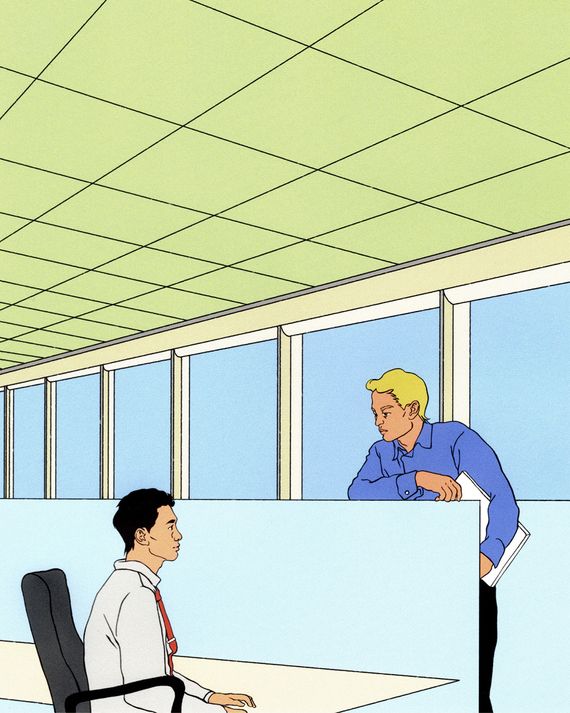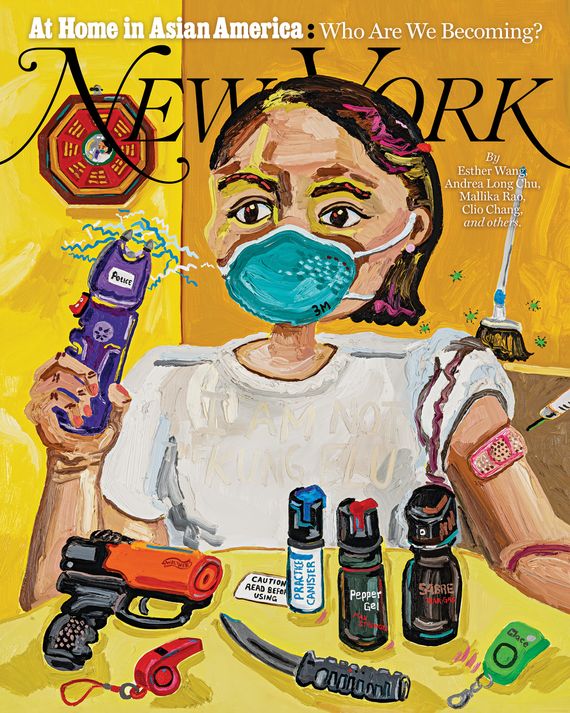
It’s not like they put a sign on your desk that reads “Diversity Hire.” You just know, with a certainty as deep as earliest experience, that your race played a role in the scouting, the interviewing, and the hiring. How much of a role you’ll never know. Did your race gild the lily of your impressive résumé? Or was it the cheat code that allowed you to catapult over candidates who were better?
In 2022, when corporations, especially in the creative industries, are so eager to diversify their ranks, being Asian has become an asset of great value in the office. Sure, Asian people have problems, too. Horrible hate crimes were committed. The former president tried to blame COVID on the Chinese. As a result, there has been a tendency among Asian Americans in recent years — particularly assimilated, educated ones — to group themselves with other oppressed minorities. But I see myself as someone who has won the race lottery. As a light-skinned East Asian man, I have never been randomly stopped by the police, and no doorman has ever assumed I was the delivery boy. None of the serious indignities and disadvantages of being a minority in America has been inflicted on me, yet I have accrued all the benefits of being a person of color, particularly when it comes to my career. Coveted jobs have miraculously landed in my lap. Raises and promotions come at a frequent clip, while my chances of being fired are low. I sometimes think this is what life must have been like for white people in the recent past, like in that old SNL sketch where Eddie Murphy disguises himself as a white man and New York City turns into a carnival of parties and free stuff.
The difference is that the white people in the sketch don’t know that Murphy is Black, while the white people in my life don’t realize I am, if not white, then about as close to it as one can get. One of my parents is white. I also enjoy certain markers of status; I had a good, private education, which later proved useful in introducing me to the kinds of white people one encounters in the more exclusive enclaves of the white-collar workforce. Who knows where I would have ended up without this exposure? I grew up in a place where white people were so scarce as to be special, which meant that when I arrived in this country for university, I was befuddled by the many varieties of whites, all intimidating, all in possession of some innate talent for living from which I was excluded, from the guy at the deli counter to the boarding-school kids. But total alienation evolved into familiarity with white Americans, which is how assimilation works if you have access to those institutions and white family to fall back on. One day, you realize you know how to speak, how to behave, and how to discern, and what was once alien is second nature.
At first, office life was similarly isolating. When I first entered the workforce in the mid-aughts, the white bosses, who always seemed so large and loud, naturally preferred the younger versions of themselves. As an Asian with a more delicate armature, I felt like a minnow among manatees. I remember the white boss at a later job, who otherwise remained aloof from the proletarian members of the staff, venturing to my desk one day to ask me an important question: Did I know the Wi-Fi password? I suspect he thought I was the tech guy.
These experiences left only the faintest scars on my psyche. They were well worth the trade-off that appeared later in my career, when a lack of diversity became a crisis for politically aware companies. Around 2015 came a palpable shift, a sense of doors opening that had previously been shut. Emails were returned; jobs were obtained. Then, in subsequent years, in a great rush, from several companies at once, recruitment, sometimes for positions for which I was patently unqualified.
Yet even if this is how things used to work for white people, I still feel like an outsider. One of the ways I’m certain I’m not white is that I do not enjoy the white person’s carefree relationship with the world. No matter what I achieve, I am always reminded that I can never fully become the person I want to be because there is a slippage between who I am and what I signify, the latter of which will always be subject to the projections of white people. I remember attending a meeting at a former job where we discussed improving diversity at our company. I was the only nonwhite person there, and my boss, who was feeling defensive after hiring yet another white man, cited my presence as evidence that he had a good track record when it came to recruiting minorities. If I had had any delusions that I was in that room for my hard work and brilliant ideas, they would have been dispelled. I was, in truth, an object of condescension.
But I knew that already. Even if the person who made this proud confession had not been someone whose opinion of me carried great weight, he had the power to humiliate — and a humiliation is what this was, albeit a minor one. And even if this person had hired me for myself alone, even if the thought of race had never crossed his mind, it would have crossed mine, because that extra layer of racial consciousness cannot be peeled away.
No matter. A modest price to pay for the perks of near whiteness. I do not possess the white gift for assuming I have earned what I have gotten, but I have gotten it all the same. There are all sorts of winners in a racist society, and I am one of them.






























